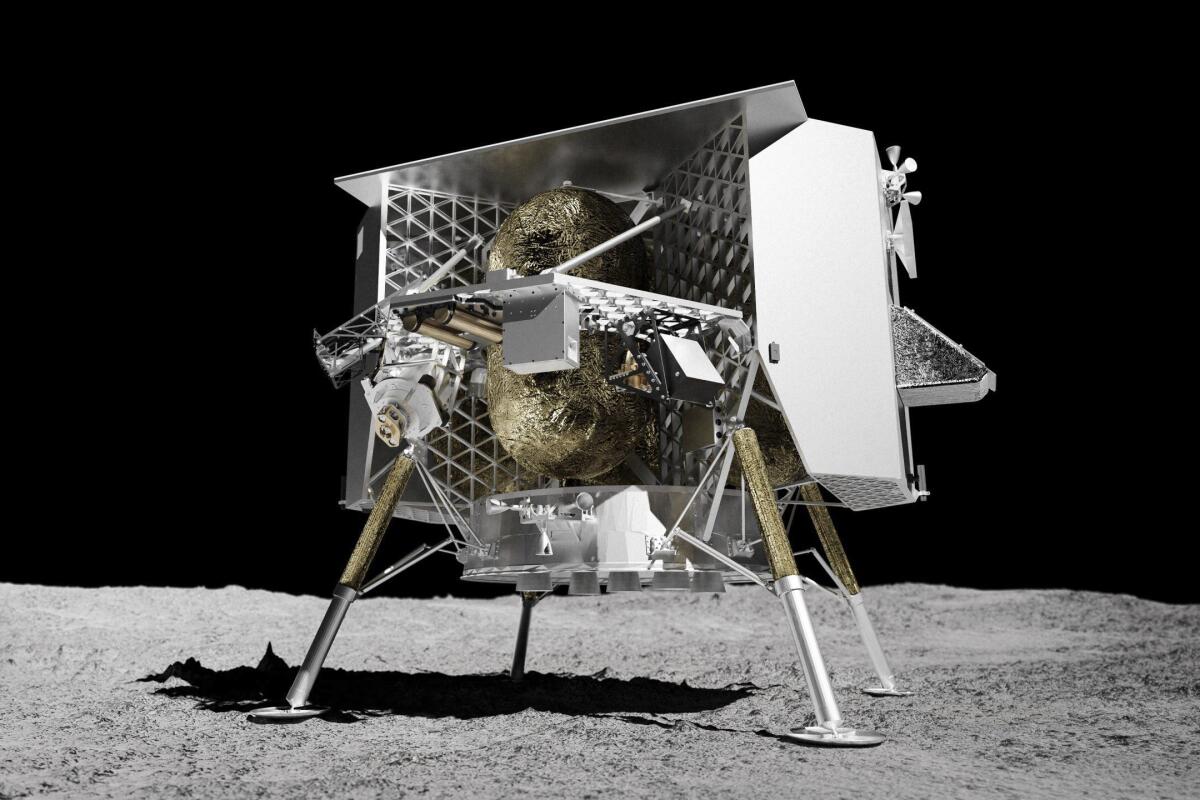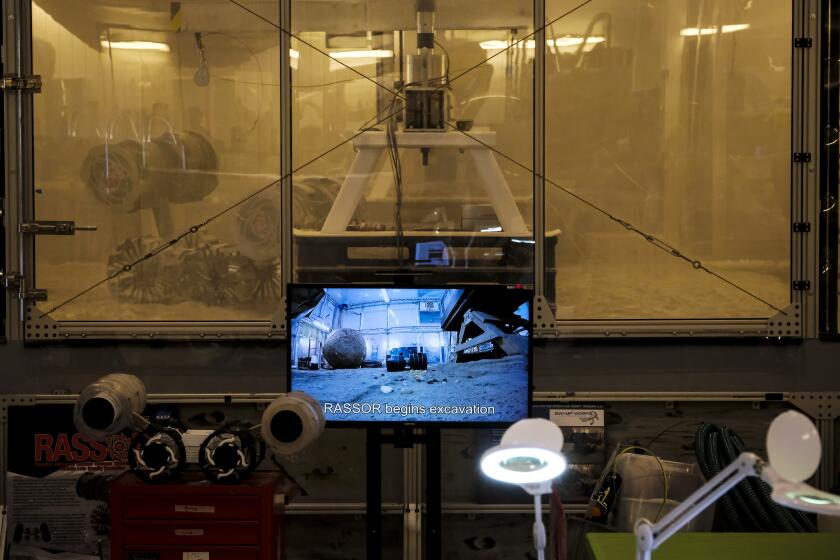Would-be lunar lander, the first in 50 years, is intentionally destroyed after fuel leak

- Share via
A U.S. company’s failed moonshot ended with a fiery plunge over the South Pacific, officials confirmed Friday.
Astrobotic Technology said contact and then tracking were lost as its lunar lander reentered Earth’s atmosphere Thursday, 10 days after launching from Florida. It received confirmation Friday from U.S. Space Command that the spacecraft broke apart during its final moments, CEO John Thornton said.
A fuel leak shortly after liftoff had nixed any chance of a moon touchdown.
“What a wild adventure we were just on,” Thornton said. “Certainly not the outcome we were hoping for and certainly challenging right up front.”
After consulting with NASA and other government experts, Astrobotic took steps to destroy its crippled lander in order to protect other spacecraft. Flight controllers at the company’s Pittsburgh headquarters briefly fired the engines, getting the lander in the right location for reentry despite little fuel.
Thornton said an investigation board will be convened to determine what went wrong. Engineers suspect a stuck valve in the propellant system caused a tank to rupture.
Stardust is romantic, but moon dust a potential hazard as NASA prepares to return to the lunar surface.
“We were coming from the highest high of the perfect launch and came down to a lowest low” when the tank burst a few hours after liftoff, he told reporters.
The 6-foot-tall lander, named after the peregrine falcon, made it all the way out to the moon’s orbit, more than 240,000 miles away, before doing a U-turn and hurtling back toward Earth.
It was the first U.S. lunar lander in more than half a century. The next one is set to blast off next month, built and operated by Houston’s Intuitive Machines. NASA paid millions of dollars to the two companies to fly its experiments to the moon, part of an effort to commercialize lunar deliveries ahead of astronauts’ arrival.
Right before Friday’s U.S. news conference, a lunar lander from Japan touched down on the moon, but it was unable to generate crucial solar power. The U.S., Russia, China and India have successfully landed spacecraft on the moon, and only the U.S. has landed astronauts.
Astrobotic’s lander carried a variety of experiments — including five from NASA — as well as ashes and DNA from 70 space enthusiasts, including “Star Trek” creator Gene Roddenberry. Flight controllers were able to turn on some experiments and collect data.
The company is already is working on an even bigger lunar lander that will carry NASA’s Viper rover to the moon in a year.
More to Read
Inside the business of entertainment
The Wide Shot brings you news, analysis and insights on everything from streaming wars to production — and what it all means for the future.
You may occasionally receive promotional content from the Los Angeles Times.











